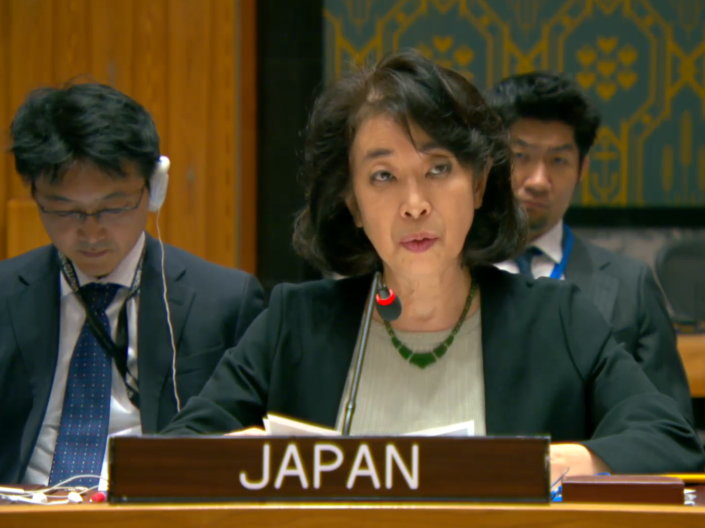コンゴ(民)情勢に関する志野大使ステートメント
令和5年9月28日

I would like to express my gratitude to SRSG Keita and Ms. Modi, Executive Director and Co-Founder of AFIA MAM for their briefings. I welcome the report from Chair of the 1533 committee and the participation of representatives from DRC as well as Rwanda.
Last month, we received the Secretary General’s report on options for MONUSCO’s reconfiguration and the United Nations’ future role in the DRC. As the report highlighted, achieving a smooth, responsible and sustainable transition is our shared goal. Creating feasible conditions for this requires close and constructive cooperation among all stakeholders guided by strong ownership by the host country. The prioritized benchmarks are the key guideline for our coordinated efforts.
For furtherance of our collective endeavor, I would like to highlight the following points.
First, ensuring protection of civilians is the fundamental element for any future reconfiguration of MONUSCO. We are concerned by reports of a significant increase in the number of human rights violations, including gender-based violence, and casualties due to the growing deadliness of attacks by armed groups especially in the eastern part of the DRC. We commend MONUSCO for its dedication to providing safe spaces for local people. The recent extension of the mandate of the EAC regional forces is a positive development. Building upon this, ongoing regional initiatives, including the Nairobi and Luanda Processes, should gain renewed momentum.
Support of any kind to armed groups exacerbates an already worsening regional situation and must be stopped immediately. To avoid creating a security vacuum, government-led security sector reform remains an urgent task. Japan continues to support the DRC government’s efforts to develop community policing through capacity and institution building. The Mission’s responsible withdrawal must also be accompanied by the concomitant establishment of an effective presence of state authorities ensuring the rule of law.
Our continuous efforts to mitigate ongoing human security crises are imperative, especially in conflict-affected areas and we must uphold the humanitarian-development-peace nexus approach. People in overflowing IDP camps, especially women and children, are vulnerable to violations and abuses of their human rights. In partnership with UNFPA, Japan has been helping with prevention and aftercare of gender-based violence as well as with reproductive health by providing mobile clinics in the North Kivu region.
Finally, strengthening social cohesion is fundamental for sustainable stability. We have been observing preparations for national and local elections gearing up. Winning people’s confidence and building unity require free, fair, inclusive, peaceful and transparent elections. By contrast, reducing civic space and obstructing legitimate political campaigns will further divide the population. MONUSCO has a significant role to play in providing support for conducting these elections in December.
Japan remains committed to the sovereignty, independence, unity, and territorial integrity of the DRC. We are determined to continue working together with all stakeholders for sustainable peace and stability in the region.
